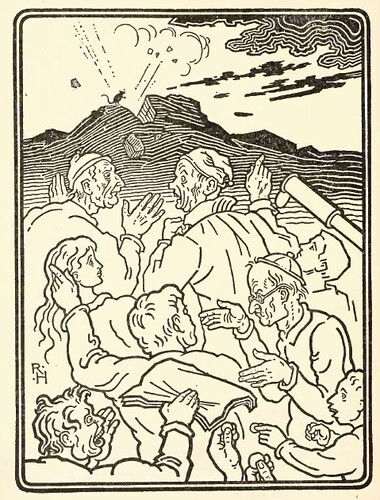HODIE (Roman Calendar): ante diem quintum Kalendas Apriles.
MYTHS and LEGENDS: The art image for today's legend shows Medea and Her Children; you can also see the legends for the current week listed together here.

TODAY'S MOTTOES and PROVERBS:
TINY MOTTOES: Today's tiny motto is: Sorte contentus (English: Content with my fate).
3-WORD PROVERBS: Today's 3-word verb-less proverb is Historia magistra vitae (English: History is the teacher of life)
AUDIO PROVERBS: Today's audio Latin proverb is Cuique suum studium (English: To each his own enthusiasm). To read a brief essay about this proverb and to listen to the audio, visit the Latin Via Proverbs blog.
PUBLILIUS SYRUS: Today's proverb from Publilius Syrus is: Etiam capillus unus habet umbram suam (English: Even a single hair has its shadow).
ERASMUS' ANIMALS: Today's animal proverb from Erasmus is Ibyci grues (English: The cranes of Ibycus; from Adagia 1.9.22, referring to the legend of the cranes who avenged Ibycus's death).
BREVISSIMA: The distich poster for today is Facienda et Fugienda. Click here for a full-sized view. I'm sharing these with English translations at Google+ now too.

And here are today's proverbial LOLcats:


Vive in diem.
Live for the day.
Somnum ne rumpe leoni.
Disturb not the lion's sleep.
TODAY'S FABLES:
FABULAE FACILES: The fable from the Fabulae Faciles widget is Canis et Umbra, the famous story of the dog and its reflection (this fable has a vocabulary list).
MILLE FABULAE: The fable from the Mille Fabulae et Una widget is Mus et Montes, a fable that fits today's news cycle perfectly.

Greek Bible Art - and Latin and English, too. Below is one of my Greek Bible Art graphics; for the individual Greek, Latin and English versions of the graphic, see the blog post: λαβὼν τὸν ἄρτον εὐλόγησεν. Accepit panem, et benedixit. He took bread, and blessed it.
